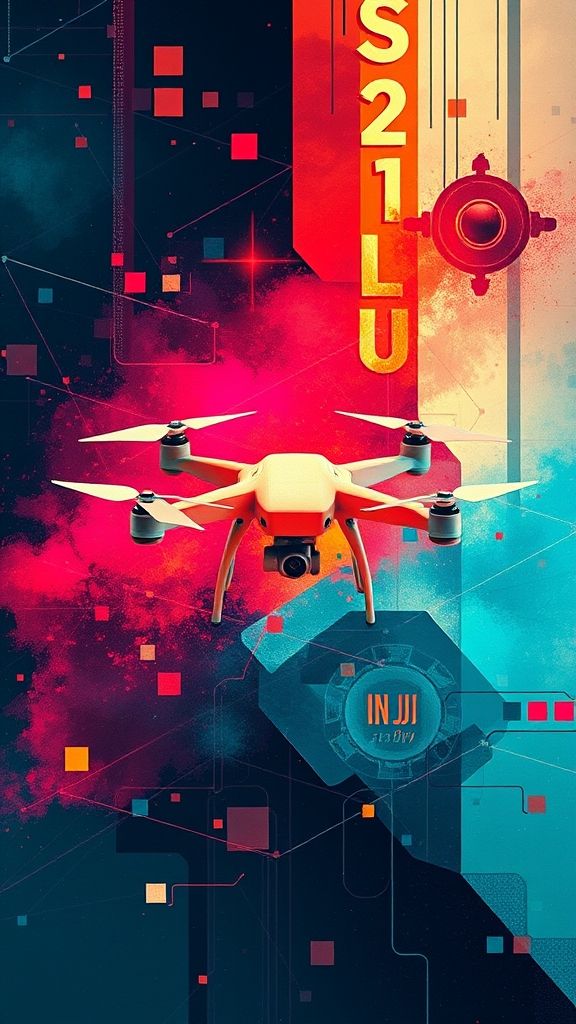Google Unveils Ironwood Tpu: Groundbreaking Ai Computing Breakthrough Set To Transform Industry
Google’s Ironwood TPU to be Generally Available in Coming Weeks, Transforming AI Computing …
30. September 2025

DJI, the world’s leading drone manufacturer, has responded to a federal court ruling that upheld its Pentagon designation as a “Chinese Military Company.” Despite the company’s losses in the lawsuit, DJI has issued a statement emphasizing that the court rejected most government allegations and highlighting the lack of evidence for Communist Party control or military affiliations.
The court explicitly rejected the Department of Defense’s claims that DJI is owned or controlled by the Chinese Communist Party, affiliated with China’s Ministry of Industry and Information Technology, or connected to military-civil fusion enterprise zones. However, the court did uphold only two government assertions: DJI’s recognition as a National Enterprise Technology Center (NETC) and the dual-use nature of its technology.
DJI emphasizes that NETC status is “widely granted to companies with industry-leading technological innovation capabilities,” including major U.S. companies across various industries. The company notes that these findings confirm its “long-held position that DJI is not controlled by the government and has no ties to the military.” Despite this, the court ruled that “whether or not DJI’s policies prohibit military use is irrelevant” to the Pentagon designation.
The military use prevention policies deemed “irrelevant” by the court are being scrutinized. DJI stressed that it was the first drone company to publicly denounce combat use of its products and has never manufactured military equipment or marketed drones for combat operations. However, the court’s ruling suggests that this stance may not be enough to overcome the designation.
DJI pledged to “continue to uphold its robust policies prohibiting the military use of its drones” and maintain all available measures to prevent combat applications. The company also emphasized its commitment to “empowering creators, businesses, and public safety organizations worldwide with safe, innovative, and accessible technology.”
The statement comes as a business pressure looms for DJI. A December 23, 2025 deadline threatens automatic FCC blacklisting if federal agencies fail to complete a mandated security review, potentially blocking new product certifications entirely. The Pentagon designation has already triggered widespread disruptions, and the company is facing immediate business pressures beyond the courtroom defeat.
DJI’s response represents a strategic attempt to salvage its reputation by highlighting the court’s rejection of the most serious allegations, even as the overall designation stands. However, the court’s ruling that company policies against military use are “irrelevant” sets a troubling precedent for commercial technology companies in the US.
The real test comes December 23, when federal agencies must complete the mandated security review or face automatic FCC blacklisting. DJI may find itself automatically banned through bureaucratic inaction rather than explicit policy decisions, leaving the entire drone industry in uncertainty about equipment availability and future operations.
The bigger picture is that this is just one front in a much broader tech war between Washington and Beijing. In recent years, the US has slapped restrictions on Chinese companies across sectors: semiconductors, batteries, surveillance cameras, and more. Hesai Group, a LiDAR maker from Shanghai, also lost a nearly identical lawsuit against the Pentagon this summer. Others, like battery giant CATL, have threatened legal action.
For American drone pilots, though, the worry is less about geopolitics and more about gear. DJI makes drones that are affordable, reliable, and unmatched in terms of features. US drone makers, by contrast, often cater to military or specialized public safety markets, not everyday pilots. If DJI products get squeezed out, pilots could be left with fewer choices and higher costs.
The implications of the court’s ruling on the US drone industry will continue to unfold in the coming weeks and months. The decision by Judge Friedman sets a troubling precedent for commercial technology companies in the US. If national security designations can be triggered based solely on theoretical military applications, virtually any advanced technology company could face similar restrictions.
Ultimately, DJI must navigate this complex landscape and demonstrate its commitment to innovation, safety, and accessibility. The impact on US drone pilots will be significant if DJI products get squeezed out of the market. With fewer choices and higher costs, pilots may be forced to seek alternative vendors or compromise on their needs.
The long-term consequences of this scenario could be far-reaching, with potential implications for the entire drone industry. As the situation continues to evolve, it’s essential for stakeholders to remain vigilant and adapt to changing circumstances.